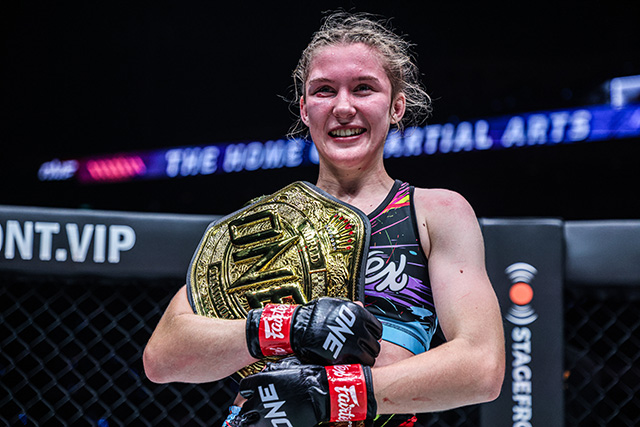The Bottom Line: A Troubling Catch-22
Editor’s note: The views and opinions expressed below are those of the author and do not necessarily reflect the views of Sherdog.com, its affiliates and sponsors or its parent company, Evolve Media.
There is no greater existential threat to the future of MMA than brain trauma in fighters. It looms large already, and it’s hard to imagine the concern ever going away. Combat sports by their very nature threaten the health of the participants involved. There’s no way around that. Fighters, fans, media and politicians can either choose to view that as an acceptable danger entered into by willing participants or not. This will be something those various groups will be considering for many years to come, just like with football or even soccer and hockey.
Advertisement
The very public dispute last week between Mark Hunt and the Ultimate Fighting Championship was a messy affair all around. Hunt provided a service in bringing to light the issues he has gone through as a battle-tested veteran of the sport and found himself seemingly punished for it. Even if one agrees with the UFC’s decision, it’s hard not to be sympathetic towards Hunt on a number of levels and to understand his frustrations. He has vented publicly about all his opponents who have failed drug tests and here he was being prevented from fighting for reasons that didn’t harm his opponent at all.
On the other side, the UFC took a step to protect the safety of a
fighter and found itself publicly ripped for doing so and its
motives called into question. Hunt clearly viewed the UFC’s
decision as score settling, despite the fact UFC lost a main event
in the process. Even those who viewed the UFC’s decision as the
right one didn’t give the company much in the way of positive
credit. It felt like on balance the UFC came out of the whole
situation worse, even though it could have done worse had it not
pulled Hunt.
There were no winners in this skirmish. However, the most troubling aspect of the entire sequence has been less discussed: the lesson that other fighters are likely to draw from what happened. This will have the longest lasting effect, and it’s an almost entirely negative one.
Active athletes are going to be important allies in future research about brain injuries. They’re going to provide the best information about what’s happening in the brain during a career. They also offer up the possibility of helping targeted individual cases as opposed to learning in the aggregate and then making systemic changes. There’s nothing wrong with those sorts of changes, but they do nothing for the deceased athletes who provide the information.
A significant part of future research into brain trauma will come in the form of tests. However, we are a very long way away from having a strong sense of the full functioning of the brain. Tests can show us patterns, but we don’t yet fully know what those patterns mean and it may be a long time before we do. As such, it’s imperative to also have athletes report their own experiences. A test isn’t going to definitively establish what an athlete is thinking and feeling anytime soon. Only an athlete knows for sure.
That’s where Hunt comes in. Hunt speaks up and outlines his experiences as a 43-year-old fighter with decades of experience. It brings to light what may or may not be true for other fighters in a similar situation. It would be useful to know whether that’s common. Unfortunately, any fighter paying attention was given a very strong disincentive not to tell us. Hunt was an active fighter and had a scheduled fight pulled pretty much immediately. That could happen to anyone, but the problem for fighters is even deeper than that.
Unlike in team sports, individual athletes are able to make big paychecks long after their prime. Thus, even fighters winding down their careers are unlikely to want to talk about brain issues if they think they might ever want to fight again sometime down the road. If they’re asked about those problems, they have every incentive to lie and thus give a misleading impression to the public that things are better than they may be. On the flipside, if only fighters with no hope of ever fighting again are willing to talk about the subject, it’s likely to produce only bad stories and a misleadingly negative public impression. Honesty and clarity are both likely to suffer.
None of this is to say UFC was wrong to pull Hunt. That’s why the predicament was so unfortunate. The UFC could either put a fighter in the Octagon who all but said publicly he shouldn’t be fighting for his own good, or it could tell all other fighters out there that they’d better keep their experiences to themselves if they don’t want to risk their careers. It’s all such a shame given how important it is to know if Hunt’s situation is an anomaly or commonplace.
Todd Martin has written about mixed martial arts since 2002 for a variety of outlets, including CBSSports.com, SI.com, ESPN.com, the Los Angeles Times, MMApayout.com, Fight Magazine and Fighting Spirit Magazine. He has appeared on a number of radio stations, including ESPN affiliates in New York and Washington, D.C., and HDNet’s “Inside MMA” television show. In addition to his work at Sherdog.com, he does a weekly podcast with Wade Keller at PWTorch.com and blogs regularly at LaTimes.com. Todd received his BA from Vassar College in 2003 and JD from UCLA School of Law in 2007 and is a licensed attorney. He has covered UFC, Pride, Bellator, Affliction, IFL, WFA, Strikeforce, WEC and K-1 live events. He believes deeply in the power of MMA to heal the world and bring happiness to all of its people.
Related Articles







